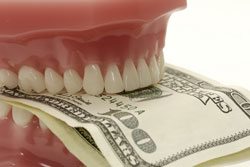 Americans born after World War II have grown up in a culture that seems to promise them everything. The greatest economy in history was built, in part, by creating an insatiable demand for “more.” Unfortunately, however, its consequences can be measured in part by an unmanageable national debt, the approaching scarcity of many natural resources, increasing class conflict, and the high degree of stress and unhappiness of society at large.
Americans born after World War II have grown up in a culture that seems to promise them everything. The greatest economy in history was built, in part, by creating an insatiable demand for “more.” Unfortunately, however, its consequences can be measured in part by an unmanageable national debt, the approaching scarcity of many natural resources, increasing class conflict, and the high degree of stress and unhappiness of society at large.
Many retirees, as well as those who hope to retire within the next decade, are discovering that their resources may not be able to provide the lifestyle they’d anticipated. For some, there is little alternative except to severely cut back expenditures and lower expectations. For those who have not yet reached those years, there is another option: living lean.
The Lure of Possessions and Immediate Gratification
Younger Americans often find themselves at a crossroads in life: They must choose whether to maximize their immediate pleasures, or balance them with their future needs. Unfortunately, too many opt for the former. They often do so because they believe the following.
1. You’re Only Young Once
If you don’t grab all you can now – big homes, expensive cars, extravagant vacations – you may not have another chance. However, what folks with this mindset don’t realize is that adventure, excitement, passion, and satisfaction are not exclusive to a particular age, or even income.
Former President George H.W. Bush recently celebrated his 90th birthday by skydiving, a feat he has performed every five years since turning 65. Boone Pickens, at age 86, is leading a national campaign to replace petroleum with natural gas and wind energy. Mick Jagger is still touring with the Rolling Stones. Grandmothers and grandfathers fill golf courses, ski slopes, and universities learning new skills and pursuing dreams.
Read more . . .
The truth is, there is no single age or stage of life that is better than another. And being young is not an excuse for irresponsibility.




